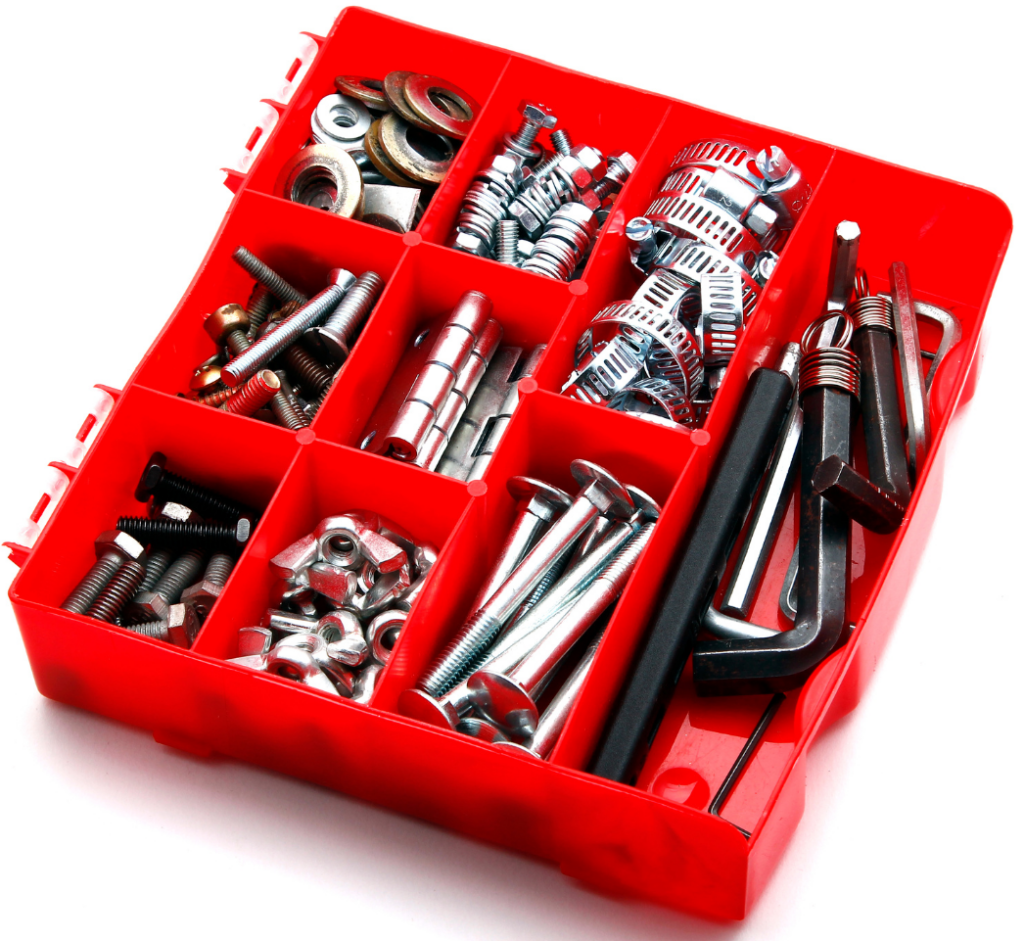
Hardware is critical to any assembly’s success, so we work closely with you to identify the best hardware for your goals.
Polyhistor’s unique blend of product design services, on-site engineering expertise, and high-volume CNC machining capabilities equip us to advise you on the various fasteners available and recommend the right solution.
Here, we’ve outlined the five considerations we discuss with each product development client to ensure a product with exceptional form, fit, and functionality.
5 Hardware Considerations for Design Engineers
When we assist you with ground-up product design services, we take every aspect of your assembly into consideration—including how you’ll hold it together. Not every hardware solution is suited for every assembly, and these five factors will help you select the right fastener method.
Download our Design for Assembly eBook!
1. Production volume
You’ll want to determine your anticipated production volume before deciding on hardware. Some fasteners aren’t suited to higher-volume productions, in particular, so you’ll want to avoid those options if you’re planning for larger quantities.
For instance, screwdrivers tend to slip out of flat-head or slot-drive screws, making them an inconvenient choice for high-volume assemblies. A Phillips-head screw, on the other hand, holds the screwdriver more securely and can save you significant time and money on assembly.
Most of our precision machine shop clients also prefer magnetic screws over non-magnetic screws, especially for higher quantities. Driving in 100 magnetic screws is sure to be a much faster process than managing 100 non-magnetic screws that require careful, manual handling.
2. Material
Though magnetic Phillips-head screws are usually preferred, using them isn’t always an option. If your application must withstand a corrosive environment, for example, only stainless steel screws will do—and they are not magnetic.
For clients who want enhanced corrosion resistance, we can apply a black oxide coating to screws. The black oxide conversion coating is particularly popular for Department of Defense projects due to its durability and anti-corrosion properties. Depending on your goals, you may also request black oxide to improve or reduce the visibility of the hardware.
3. Lubrication
A protective oxide coating can help prevent an issue called “galling” or “adhesive wear.” Galling is a type of friction-induced wear that causes contiguous surfaces to fuse together, and it’s especially common with titanium, aluminum, and stainless steel fasteners with fine or damaged threads.
An anti-seize coating or lubricant can reduce the risk of galling, but you may need to reapply the lubricant if you regularly disassemble a galling-prone product for maintenance. If galling does occur, you may have no choice but to cut or break apart the fused components—and this could destroy your parts entirely.
Rivets are less likely to gall than screws because rivets won’t shake loose and cause friction. However, disassembling a product held together with rivets for maintenance can be challenging and time-consuming, so be aware of your longer-term access needs for your product.
4. Plastic applications
If you’re evaluating the fastening options for plastic parts, we recommend a few different options. For parts that won’t ever be disassembled, self-tapping screws are an easy solution. If you need easy maintenance access, though, you’ll want to design your assembly with threaded insert molds for securing your screws.
A third solution is to eliminate the hardware altogether. Plastic parts can be designed to snap together quickly and easily; even machined plastic parts can be made to interlock without fasteners, so discuss your needs for plastic machining services with our team!
5. Security fasteners
When you want to prevent people from disassembling your application, security fasteners are an excellent choice. This tamper-proof, anti-resistant hardware resists pressure and wear. Security screws, bolts, and other fasteners are also very challenging to remove, requiring special tools that the average person won’t have on hand.
Products such as electrical boxes and security systems typically utilize security fasteners. You might also want to consider security hardware if turning a screw, for instance, would alter key calibration data.
Let us know anytime you want to prevent disassembly or manipulation of a part or product. We’ll most likely recommend security fasteners, or we’ll apply a product such as Loctite’s threadlocker solution, which fills the air gaps between threads and eliminates vibrational loosening.
Hardware and Assembly Support from Polyhistor
At Polyhistor, we can provide hardware recommendations as well as assembly guidance so you know what type of screwdrivers or torque drivers you’ll need for assembly and disassembly. Since our precision machine shop offers in-house assembly, we know exactly which tools work best and where to procure them.
Our engineering expertise also allows us to provide design guidance to minimize or eliminate the need for fasteners entirely!
Whether we handle your assembly or you do the work in-house, we’re here to provide product design services, offer Design for Assembly guidance, and make hardware recommendations based on your application and objectives.
Request a quote to kickstart your product development project!
